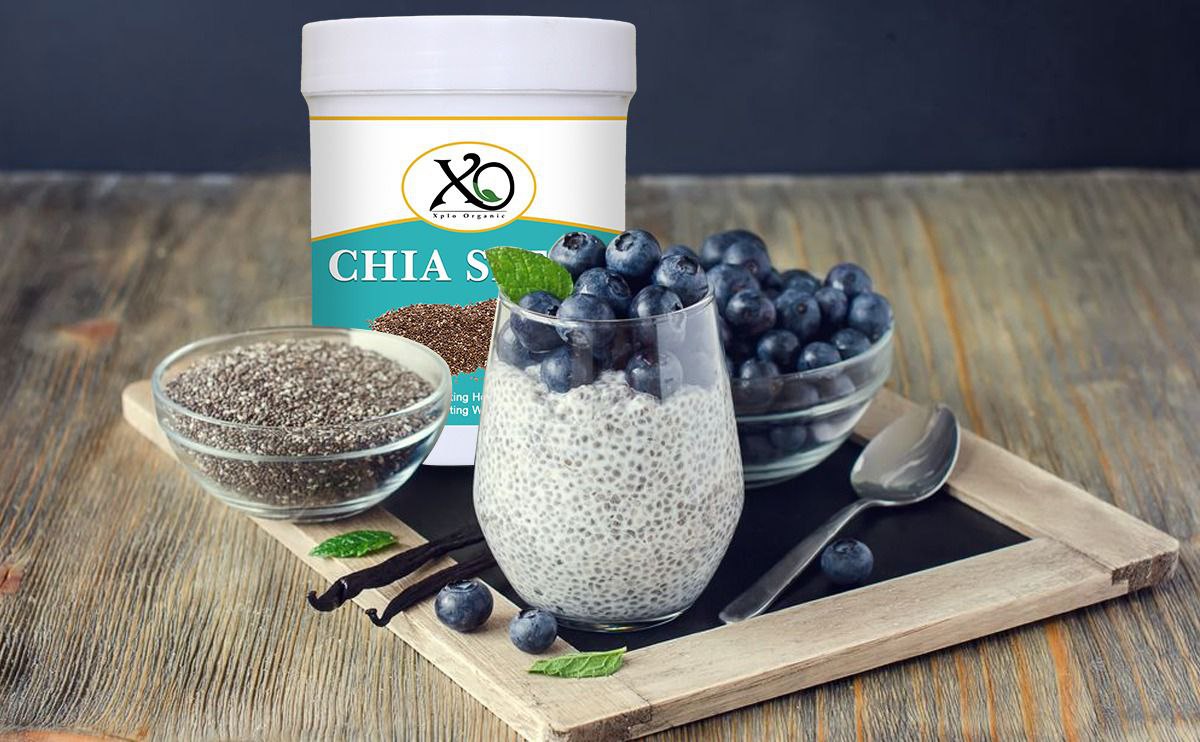In the realm of superfoods, chia seeds have emerged as a standout star, capturing the attention of health enthusiasts and nutritionists alike. These tiny seeds, native to the Salvia hispanica plant, pack a punch with their impressive nutritional profile and numerous health benefits. In this blog post, we’ll dive into what makes chia seeds so special, explore their health benefits, and provide practical tips on how to incorporate them into your diet.
What Are Chia Seeds?
Chia seeds come from the Salvia hispanica plant, which is native to Central and South America. The word “chia” is derived from the Mayan word for “strength,” reflecting the seed’s historical use by ancient civilizations like the Aztecs and Mayans for their endurance and energy-boosting properties.
These seeds are small, oval-shaped, and come in various colours, including black, white, and grey. When soaked in liquid, chia seeds have the unique ability to form a gel-like substance, which is often utilized in recipes for its texture and health benefits.
Nutritional Profile
Despite their small size, chia seeds are packed with nutrients:
- Omega-3 Fatty Acids: Chia seeds are an excellent plant-based source of alpha-linolenic acid (ALA), a type of omega-3 fatty acid known for its heart health benefits.
- Fibber: They are incredibly high in dietary fibber, with one ounce (about two tablespoons) providing around 11 grams of fibber. This makes them excellent for digestive health.
- Protein: Chia seeds offer a decent amount of protein, with approximately 4 grams per ounce. They also contain all nine essential amino acids, making them a complete protein source.
- Vitamins and Minerals: These tiny seeds are rich in important nutrients such as calcium, magnesium, and phosphorus, which are essential for bone health. They also contain small amounts of vitamins B1 (thiamine) and B3 (niacin).
- Antioxidants: Chia seeds are high in antioxidants, which help to neutralize free radicals and reduce oxidative stress.
Health Benefits
The impressive nutritional content of chia seeds translates into a range of health benefits:
- Supports Digestive Health: The high fibber content in chia seeds promotes regular bowel movements and supports a healthy digestive system. The soluble fibber also helps to maintain a feeling of fullness, which can aid in weight management.
- Boosts Heart Health: Omega-3 fatty acids are known for their heart-healthy benefits. Regular consumption of chia seeds can help lower blood pressure, reduce cholesterol levels, and decrease the risk of cardiovascular disease.
- Enhances Bone Health: With their high content of calcium, magnesium, and phosphorus, chia seeds can contribute to stronger bones and help prevent osteoporosis.
- Aids in Blood Sugar Regulation: Chia seeds may help stabilize blood sugar levels due to their fibber content and ability to slow down digestion, which can be beneficial for individuals managing diabetes.
- Supports Healthy Skin: The antioxidants and healthy fats in chia seeds can help keep your skin hydrated, reduce inflammation, and improve overall skin health.
- Promotes Weight Management: The fibber and protein in chia seeds can help increase satiety, making you feel fuller for longer periods and potentially aiding in weight loss or maintenance.
How to Incorporate Chia Seeds into Your Diet
Chia seeds are incredibly versatile and can be easily incorporated into your diet in various ways:
- Chia Pudding: Mix chia seeds with a liquid such as almond milk or coconut milk and let them sit overnight. The seeds will absorb the liquid and form a pudding-like texture. Add fruits, nuts, or sweeteners for extra flavour.
- Smoothies: Blend chia seeds into your smoothies for added nutrients and a thicker texture.
- Baked Goods: Add chia seeds to muffins, bread, or cookies for a nutritional boost.
- Salads: Sprinkle chia seeds on top of salads for a crunchy texture and added nutrients.
- Yogurt: Mix chia seeds into yogurt or overnight oats for a satisfying and nutritious breakfast.
- Soups and Stews: Stir chia seeds into soups or stews to thicken the consistency and enrich the nutritional value.
Choosing and Storing Chia Seeds
When purchasing chia seeds, look for organic and non-GMO options to ensure quality. Store chia seeds in an airtight container in a cool, dark place to maintain their freshness. They can also be refrigerated to extend their shelf life.
Conclusion
Chia seeds are a small but mighty addition to any diet, offering a wide range of health benefits due to their impressive nutritional profile. Whether you’re looking to boost your heart health, improve digestion, or simply add a nutritious ingredient to your meals, chia seeds are an excellent choice. With their versatility and ease of use, these tiny seeds can seamlessly fit into a variety of dishes, making them a valuable addition to a balanced and health-conscious diet.


